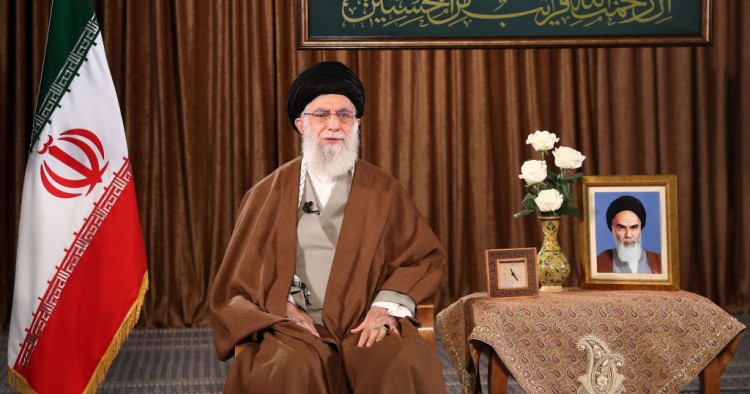It should come as no surprise that Iran’s Ayatollah Khamenei is once again predicting America’s “political, civil and moral decline” in the wake of the U.S. elections. But the regime’s preemptive attacks on President-elect Biden as an “iron fist in a velvet glove” and its demands that his administration “compensate for past mistakes” mark a departure from the Islamic Republic’s more restrained approach to previous transitions — and portend a flurry of commentary coming out of Tehran over the next two months.
Separating fact from fiction and calling out the regime’s propaganda for what it is will be key to the Biden administration’s ability to craft a coherent Iran policy.
Here are five claims that the regime clings to but have no basis in reality:
1. Iran’s hostility to the U.S. is a reaction to the unfair American policies in the Middle East.
Iran’s foreign minister often points to U.S. aggression in defending Iranian actions even though Iran’s anti-Americanism is driven by self-interestl the Islamic Regime needs to portray America as an enemy to justify its efforts to close Iran off from the Western world. That’s why the Iranian Supreme Leader fans the flames of Holocaust denial and 9/11 conspiracies. It’s also why Iran often refuses diplomacy, even when the U.S. proposes policies beneficial to the country — such as President Obama’s outreach to the supreme leader seeking a joint U.S.-Iranian effort to confront the Islamic State.
The reality is that Iran’s hostility to the U.S. is political posturing meant to scapegoat the U.S. for the regime’s failed policies. The clerical regime realized during the Iran-Iraq War that any aggression, real or imagined, will rally people around the Islamic flag, and has cleverly exploited this calculus, often to the detriment of the Iranian people, to extend its shelf-life.
Continue on New York Daily News
Photo by Iranian Supreme Leader Press Office / Handout/Anadolu Agency via Getty Images
The Middle East Institute (MEI) is an independent, non-partisan, non-for-profit, educational organization. It does not engage in advocacy and its scholars’ opinions are their own. MEI welcomes financial donations, but retains sole editorial control over its work and its publications reflect only the authors’ views. For a listing of MEI donors, please click here.













